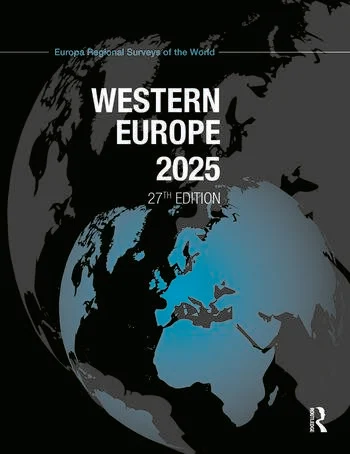The book aims to reflect in-depth the strengths and weaknesses of the European Union in an uncertain and volatile geopolitical context, as well as its current key challenges related to: safeguarding competitiveness (through industrial, energy and investment policies), shaping the 'twin transitions' of the digital and green transformation, managing the changing nature of the EU's economic and political model with long-term distributional consequences, the rising of populism, democratic and security issues, that have an impact on the future of the integration process. Individual analyses for each Member State puts forward their comparative advantages, individual features and differences in the regional and international context and their specific responses to current difficulties and opportunities.
The chapter titled ‘Luxembourg Economy: What structural changes at a time of polycrisis?’, authored by Dr Elena Danescu, Research Scientist at the Luxembourg Centre for Contemporary and Digital History (C²DH), Contemporary History of Europe research group, offers a historical perspective on the country's economic and socio-political transitions since the 19th century, highlights the main features of the current “third industrial revolution”, with innovation, dematerialization and digitalization as the main drivers of sustainable growth, and analyses the crisis-led strategy-making approach which enables the country to get through the period of polycrisis, while preserving the viability of the Luxembourg social model. Luxembourg is one of the smallest countries in the EU but the 1st in terms of wealth (as measured by GDP/capita) characterized by an international outlook both for security and economic reasons, a long tradition of political stability and social democracy, and a creative development model built on a strong human capital base, multiculturalism and a culture of consensus.
Bibliographical reference:
Danescu, Elena: Luxembourg Economy: What structural changes at a time of polycrisis?, pp. 476-494. In Western Europe 2025. Cathy Hartley (ed/dir.), London and New York: Routledge, Abingdon, 2024, 904 pages, ISBN 9781032761091, ISSN: 0953-6906




